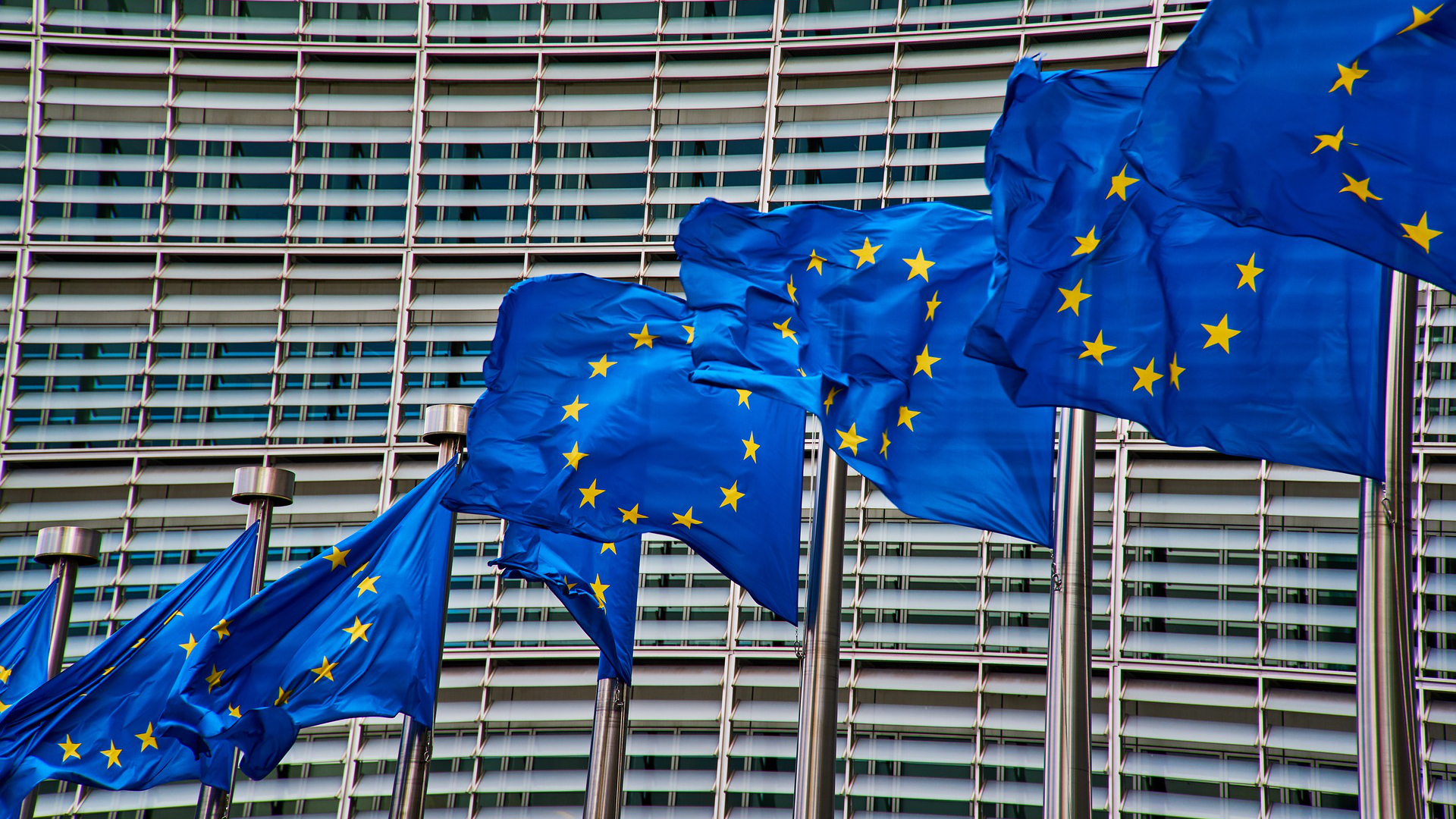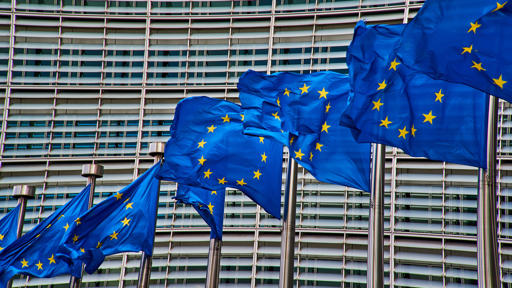The EU still wants to scan all your chats – and the rules could come into force by October 2025
-
I'm starting to edit idcaboutprivacy more and more often (and that's not a good thing)
I like the comapirson i heared at
Anne Roths(https://systemli.social/@anneroth) talk(German):You would never say: I don't need free speech because I have nothing to say. Everyone profits from data privacy and free speech and some people are depending on their life on it.
-
What activists? I need their names, for personal research reasons.
I don't know who reintroduced it, but here the original one https://eur-lex.europa.eu/legal-content/EN/TXT/?uri=COM%3A2022%3A209%3AFIN&qid=1652451192472
-
If you're a citizen of an EU country, you should contact your politicians to tell them not to, maybe they won't.
It only has to pass once, and they keep trying.
Contacting politicians directly is good, but joining orgs like the Electronic Frontier Foundation or Privacy International multiplies your impact since they have lawyers and can actualy challenge these laws in court.
-
Your OS doesn't, put the messaging apps that your friends/family/coworkers use do.
And no, you can't convince them to switch messager, I tried.
I, at least, managed to get most of my family to switch. I told them it was the only way they'd get pictures and updates of my son. The one small victory I'm satisfied with.
-
time to make my own shitty ass software to deal with this stuff
should check existing options first:
- Briar
- Simplex
- Tox
- Matrix and elements as frontend
- xmpp
-
It's not the EU yet. It's a group of activists from Denmark. There wasn't even preliminary voting on it yet.
Doesn't mean we need to be complacent of course, but so far nothing happened.How the fuck can you be pro censorship/pro big brother? What kind of idiot do you have to be? Do they just get bags of money to spout out this bullshit?
Does having a lot of money exempt you from this shit? I don't get it. I can understand detestable people being pro things that make the poor poor and the rich rich. But this affect everyone both poor and rich. The only one benefiting from this are fascist dictators.
-
How the fuck can you be pro censorship/pro big brother? What kind of idiot do you have to be? Do they just get bags of money to spout out this bullshit?
Does having a lot of money exempt you from this shit? I don't get it. I can understand detestable people being pro things that make the poor poor and the rich rich. But this affect everyone both poor and rich. The only one benefiting from this are fascist dictators.
It's not "Danish activists" but rather the government. As a Dane I know how horny these people are to create a fullblown police/nanny state. SVM (the name for the government) is terrible for all of us. Can't wait to see their voter share drastically diminish at the next election, but clearly they can do a lot of harm first..
-
Your OS doesn't, put the messaging apps that your friends/family/coworkers use do.
And no, you can't convince them to switch messager, I tried.
You don't have to say everything on those apps, tho, just do basic stuff and for longer convos request an encrypted chat app.
-
Is the EU not subject to GDPR?
Rules are for the people, not governments
-
Is the EU not subject to GDPR?
The EU decides what's GDPR. And it seems recently it decided to not be buggered by those old ideas that are privacy, freedom, etc.
-
It's not the EU yet. It's a group of activists from Denmark. There wasn't even preliminary voting on it yet.
Doesn't mean we need to be complacent of course, but so far nothing happened.but so far nothing happened
Things happens frighteningly fast these days. It's not a matter of being complacent; it's a matter of budding things in the nip. Which won't work. Then tirelessly fight back against it.
Unless you've been sleeping under a rock these last few… weeks. Not even months. Some legislation can go from 0 to 100 extremely quickly if left unchecked.
-
The fuck is happening over there? Was there lead in the water?
It's not lead, it's Russians
-
Thank god my OS doesn't care about EU regulation
As long as owning a device that allow full E2E encryption without spyware isn't illegal.
It bears repeating a lot of time : the technology to circumvent these things exist, and will continue to exist. However, there's nothing preventing obtuse lawmakers from making it illegal to own. And then, it's just a matter of catching someone and finding some rooted android phone in his pocket.
-
You're answering the how, but I'm asking for the why.

More money. More power. More control over millions of people. Control over what you say? Not their problem; just control everything.
The ability to deny other what they want is a drug to some people; make them feel superior.
-
This post did not contain any content.

The EU still wants to scan all your chats – and the rules could come into force by October 2025
As Denmark began its EU Presidency on July 1, 2025, the Chat Control proposal came back to the lawmakers' table on the very first day.
TechRadar (www.techradar.com)
This is not the Europe I remember...
-
It's not "Danish activists" but rather the government. As a Dane I know how horny these people are to create a fullblown police/nanny state. SVM (the name for the government) is terrible for all of us. Can't wait to see their voter share drastically diminish at the next election, but clearly they can do a lot of harm first..
I mean, Danish government comprised of people. And some people there are activists about this particular bullshit, so they're pushing it at every opportunity.
I should've been more specific that it's not just random group of people, but my point was that it's not the decision of the entire EU (or even the entire Danish government) -
I mean, Danish government comprised of people. And some people there are activists about this particular bullshit, so they're pushing it at every opportunity.
I should've been more specific that it's not just random group of people, but my point was that it's not the decision of the entire EU (or even the entire Danish government)The SVM government as a whole is huge on expanding surveillance and the police force - I don't see that it's just a small group of activists within the parties. I'm just glad other EU countries aren't biting on this bs
-
oiled-fish
Sun-rotten fish guts even, called Garum. Or nowadays Colatura di Alici, Pissata from Nizza, etc.
Garum is Roman. Oiled goatfuckers were Greek.
-
Garum is Roman. Oiled goatfuckers were Greek.
Oh, brainfart.
But to be exact, they likely had that too. Garum was in ancient to medieval times europe what soy sauce is to asia nowadays.
-
This post did not contain any content.

The EU still wants to scan all your chats – and the rules could come into force by October 2025
As Denmark began its EU Presidency on July 1, 2025, the Chat Control proposal came back to the lawmakers' table on the very first day.
TechRadar (www.techradar.com)
Buy EU, am I right?
Geezus...







